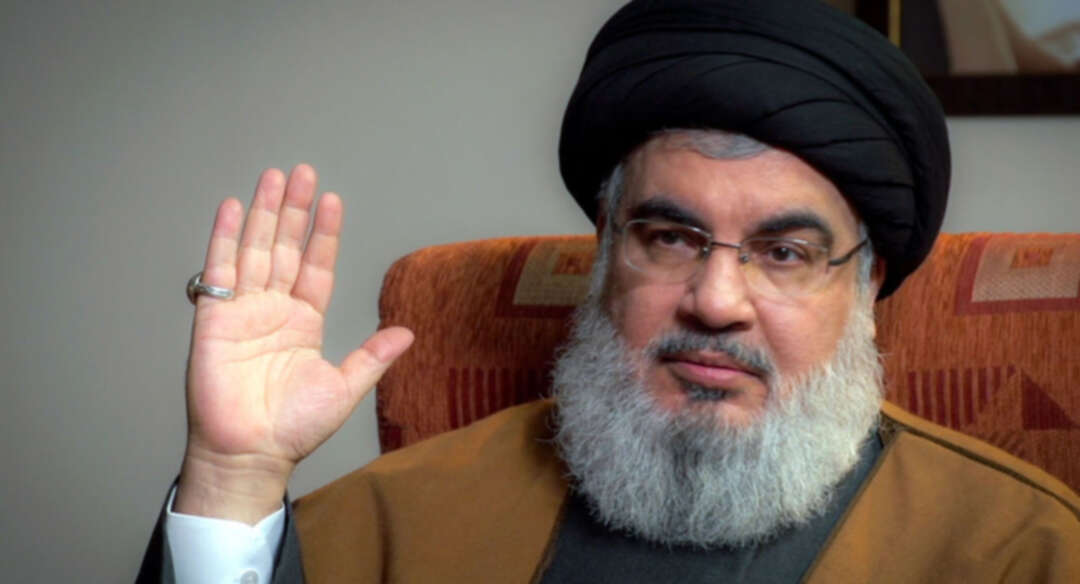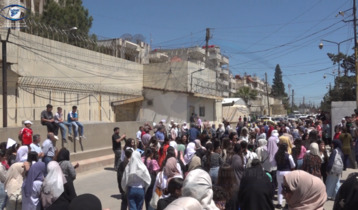-
Inside Israel's operation: Step-by-step breakdown of how Nasrallah was eliminated
-
According to security sources, the political, intelligence, and operational conditions for Nasrallah's assassination matured by Wednesday

In a secret and sophisticated operation, the Israel Defense Forces and Military Intelligence Directorate succeeded in assassinating Hezbollah Secretary-General Hassan Nasrallah in the heart of the Dahiya neighborhood in Beirut. Here's how it happened.
Using advanced intelligence and a brilliant deception maneuver that included the Prime Minister's flight to the US, security forces struck the organization's leadership in what is defined as one of the most significant military operations.
Former Intelligence Division Head Aaron Haliva had already considered the option of a targeted assassination of Hezbollah Secretary-General Hassan Nasrallah on October 11, based on the intelligence agency’s advanced capabilities.
This capability, built over many years by Military Intelligence, was non-existent during the Second Lebanon War when there was no idea where he was hiding, and the dossier on him was minimal, if not operationally useless.
Advertisement
According to security sources, the political, intelligence, and operational conditions for Nasrallah's assassination matured by Wednesday. Military Intelligence once again recommended action, and the political echelon approved it after being exposed to the intimate and sensitive intelligence collected to close the loop.
The preparation and decision for the targeted assassination began on Wednesday. The nerve-wracking wait was for precise and high-quality intelligence further to pinpoint the moment of the Hezbollah leadership meeting, showcasing arrogance and disconnect from the IDF’s intelligence and firepower capabilities.
Prime Minister Benjamin Netanyahu conveyed business as usual, gave the green light for progress on the ceasefire process, and decided to fly to the US on the "Wing of Zion" aircraft (Israel's version of Air Force One), part of what appears to be a deception maneuver to lull Hezbollah's leadership, who took the bait.
Otherwise, the leadership meeting in an underground headquarters serving as the command center for the Shia organization in the heart of the Dahiya neighborhood in Beirut would not have occurre
Security consultations took place throughout the flight to the US on the "Wing of Zion" aircraft, with intelligence updates on developments in Lebanon and the readiness of intelligence and the air force to carry out an attack that no one could escape, even in an underground network.
Advertisement
On Thursday night, the cabinet convened for a phone meeting that ended at four in the morning Israel time, nine in New York time. The Prime Minister managed preparations from his hotel room in the US, following consultations with Defense Minister Yoav Gallant, IDF Chief of Staff Herzi Halevi, and Mossad Chief David Barnea. After the professional discussion, Netanyahu and Gallant were authorized to approve the targeted assassination based on incoming intelligence.
At about 10:00 on Friday, Israel time, Netanyahu held another security consultation with the Defense Minister and with the Chief of Staff based on the latest intelligence. According to Israeli sources, intelligence was received shortly before Netanyahu’s UN speech. The IDF completed preparations, increasing readiness and alertness in monitoring and air defense systems.
Another consultation took place, and Netanyahu gave the go-ahead for the targeted assassination that would shake the Middle East and the Arab world. The Air Force command gave the green light to arm aircraft with bunker-busting bombs. The Chief of Staff and Defense Minister descended into the "pit," the IDF underground base in Tel Aviv, accompanied by the Head of Military Intelligence, Maj. Gen. Shlomi Binder, Air Force Commander Maj. Gen. Tomer Bar, and Chief of Operations Maj. Gen. Oded Basiuk. A large number of fighter jets took off, and once the signal was given, one by one, they began dropping dozens of bombs, reporting "Alpha" on the communication network one after the other. The smoke plumes were visible from afar.
Unmanned aircraft transmitted images to the Air Force "pit" as buildings collapsed in the heart of the Dahiya neighborhood. Unlike the previous failed assassination of Ali Karaki, due to a limited scope of munitions, this time the scale was deadly. Nasrallah and the commander of Hezbollah’s southern front, Ali Karaki, were killed on the spot along with other senior figures. The rest is history.
Levant-Jerusalem Post
You May Also Like
Popular Posts
Caricature
BENEFIT Sponsors BuildHer...
- April 23, 2025
BENEFIT, the Kingdom’s innovator and leading company in Fintech and electronic financial transactions service, has sponsored the BuildHer CityHack 2025 Hackathon, a two-day event spearheaded by the College of Engineering and Technology at the Royal University for Women (RUW).
Aimed at secondary school students, the event brought together a distinguished group of academic professionals and technology experts to mentor and inspire young participants.
More than 100 high school students from across the Kingdom of Bahrain took part in the hackathon, which featured an intensive programme of training workshops and hands-on sessions. These activities were tailored to enhance participants’ critical thinking, collaborative problem-solving, and team-building capabilities, while also encouraging the development of practical and sustainable solutions to contemporary challenges using modern technological tools.
BENEFIT’s Chief Executive Mr. Abdulwahed AlJanahi, commented: “Our support for this educational hackathon reflects our long-term strategic vision to nurture the talents of emerging national youth and empower the next generation of accomplished female leaders in technology. By fostering creativity and innovation, we aim to contribute meaningfully to Bahrain’s comprehensive development goals and align with the aspirations outlined in the Kingdom’s Vision 2030—an ambition in which BENEFIT plays a central role.”
Professor Riyadh Yousif Hamzah, President of the Royal University for Women, commented: “This initiative reflects our commitment to advancing women in STEM fields. We're cultivating a generation of creative, solution-driven female leaders who will drive national development. Our partnership with BENEFIT exemplifies the powerful synergy between academia and private sector in supporting educational innovation.”
Hanan Abdulla Hasan, Senior Manager, PR & Communication at BENEFIT, said: “We are honoured to collaborate with RUW in supporting this remarkable technology-focused event. It highlights our commitment to social responsibility, and our ongoing efforts to enhance the digital and innovation capabilities of young Bahraini women and foster their ability to harness technological tools in the service of a smarter, more sustainable future.”
For his part, Dr. Humam ElAgha, Acting Dean of the College of Engineering and Technology at the University, said: “BuildHer CityHack 2025 embodies our hands-on approach to education. By tackling real-world problems through creative thinking and sustainable solutions, we're preparing women to thrive in the knowledge economy – a cornerstone of the University's vision.”
opinion
Report
ads
Newsletter
Subscribe to our mailing list to get the new updates!






















